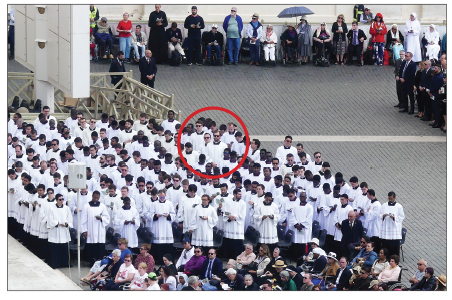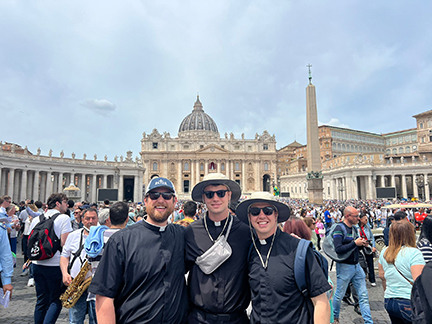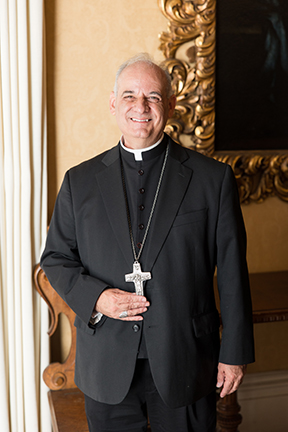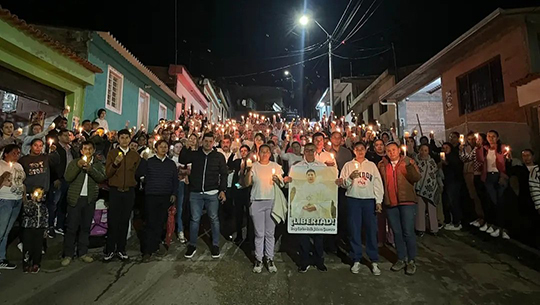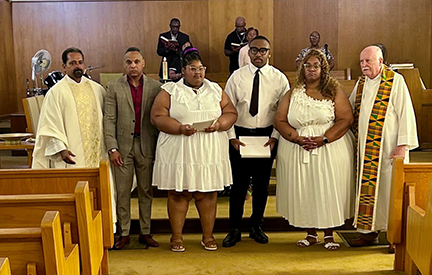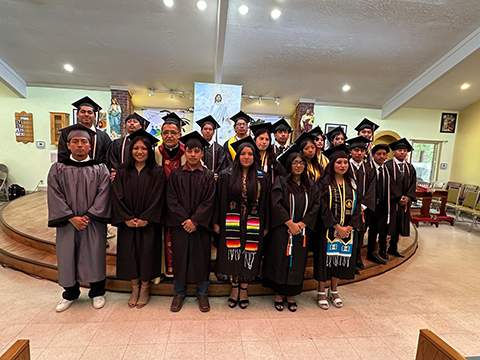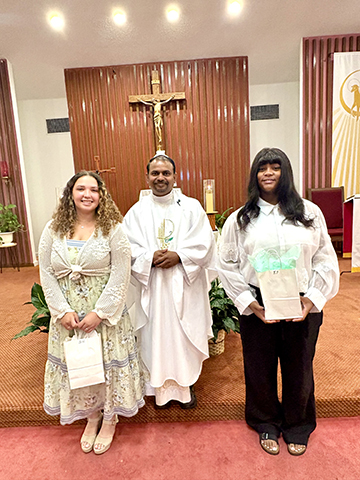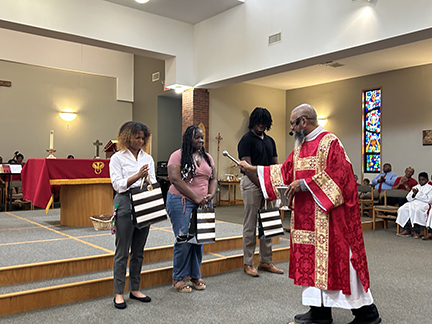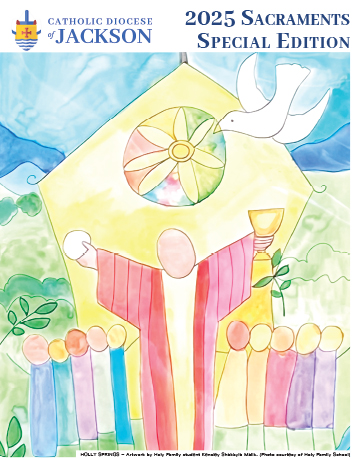NATION
SAN BERNADINO, Calif. (OSV News) – Amid concern over immigration enforcement raids in the area, the bishop of San Bernardino on July 8 issued a dispensation from the obligation to attend Sunday Mass for the faithful if they fear for their well-being. The Trump administration rescinded in January long-standing restrictions on arrests at sensitive locations, including houses of worship, schools and hospitals. The previous policy had exceptions for public safety or national security threats. Bishop Alberto Rojas wrote in a July 8 message to the faithful that “in light of the pastoral needs of our diocese and the concerns expressed by many of our brothers and sisters regarding fears of attending Mass due to potential immigration enforcement actions by civil authorities,” he would use his authority under canon law to dispense the obligation from those “who, due to genuine fear of immigration enforcement actions, are unable to attend Sunday Mass or Masses on holy days of obligation.” In May, the Diocese of Nashville, Tennessee, reminded the faithful that those with sincerely held fear about their well-being during immigration enforcement efforts are not required to attend Sunday Mass according to the church’s own teaching and canon law, but did not issue a formal dispensation.
WASHINGTON (OSV News) – The Catholic Church “maintains its stance of not endorsing or opposing political candidates,” said U.S. Conference of Catholic Bishops spokesperson Chieko Noguchi, following a recent court case in which a longstanding federal ban against such activity appeared to have been partly relaxed. Noguchi issued the statement July 8, a day after the Internal Revenue Service agreed in a court filing that a house of worship addressing its congregation about electoral politics in the context of religious faith does not violate the Johnson Amendment. The law prohibits 501(c)(3) organizations – a type of tax-exempt nonprofit under U.S. tax code, and the typical corporate structure for churches, worship communities and charities in the nation – from engaging in political campaign activity. However, said Noguchi, “The IRS was addressing a specific case, and it doesn’t change how the Catholic Church engages in public debate.” She added, “The church seeks to help Catholics form their conscience in the Gospel so they might discern which candidates and policies would advance the common good.”
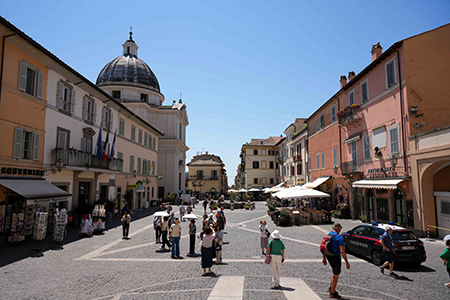
VATICAN
CASTEL GANDOLFO, Italy (CNS) – After more than a decade without its most famous vacationer, the quiet town of Castel Gandolfo once again counts the pope among its summer residents. Pope Leo XIV became the 16th pope to reside in the papal summer residence when he moved there July 6, following the recitation of the Angelus in St. Peter’s Square. “This afternoon, I will travel to Castel Gandolfo, where I intend to have a short period of rest,” the pope told pilgrims gathered in the square. “I hope that everyone will be able to enjoy some vacation time in order to restore both body and spirit.” The tradition of popes escaping the summer heat of Rome for the cooler Alban Hills began with Pope Urban VIII in 1626. In 2016, Pope Francis converted the papal property into a museum, opening the villa and gardens to the public.
WORLD
BOGOTÁ, Colombia (OSV News) – Colombian authorities continued their search for Father Carlos Jaimes Guerrero, a 30-year-old Augustinian priest who vanished June 17 near Viotá, southwest of Bogotá. His truck was later found abandoned, engine running, with no sign of violence – and no trace of him. His family has pleaded publicly for his release, and locals have held vigils and prayers. The search comes amid national shock over another tragedy: on July 1, officials confirmed eight evangelical and Protestant missionaries, abducted in April by FARC dissidents in Guaviare, were found murdered and buried in a mass grave. Authorities say the guerrillas targeted the group to prevent rival groups from gaining influence. Church leaders warn armed groups and cartels continue to terrorize communities and especially target faith leaders. The Augustinians ask for prayers and cooperation as the investigation into Father Jaimes’ disappearance intensified. “Disappearances have always been part of the grave violences carried out by armed groups here, including those of religious people,” said theologian Heyner Hernández Díaz.

